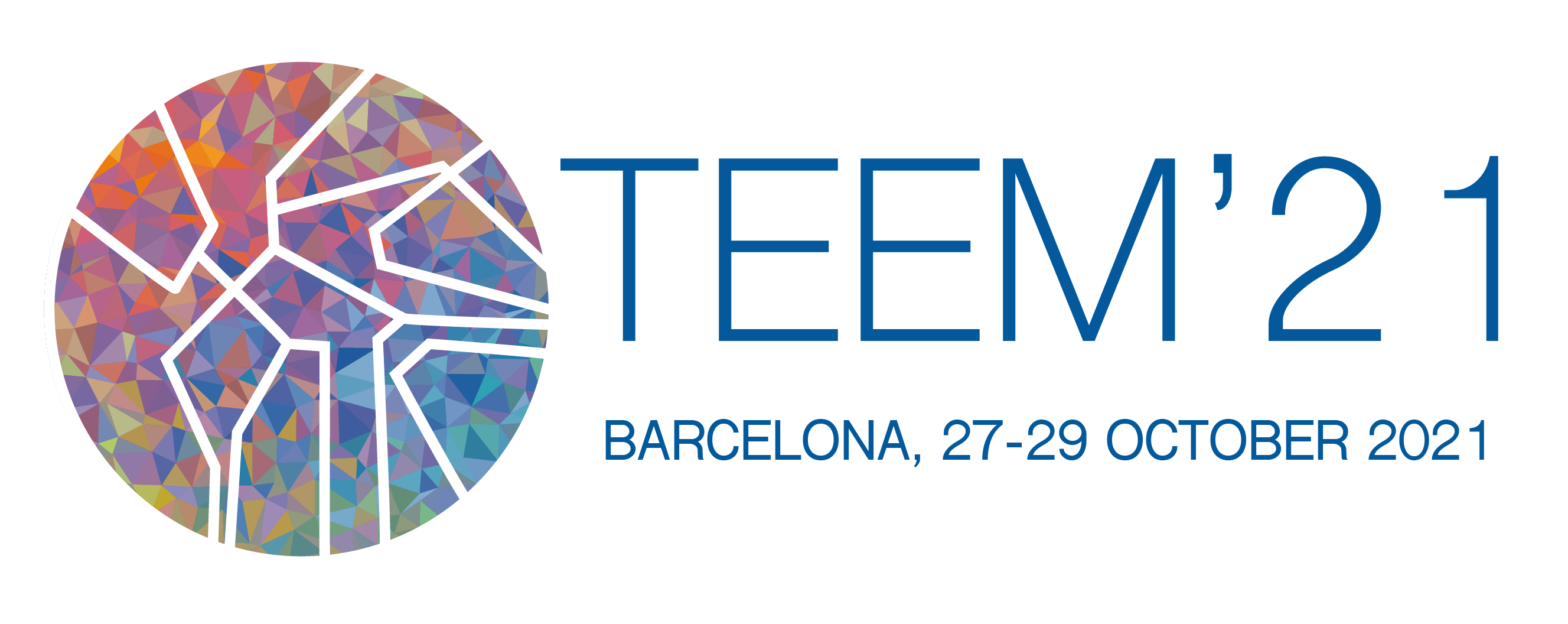Presentation
Traditionally this track concern students’ competences when arriving the market labor and the identification of teaching practices that might help students cope better with those challenges. Twenty-first century engineers need to present themselves not only technically qualified, but also socially confident. During their education students are expected to develop different competences in several areas of expertise, while in parallel develop social and personal skills such as creativity, critical thinking, communication, teamwork, leadership, proactivity, and so on. Teachers must act as facilitators in this arduous work and provide them with rich learning experiences, as related as possible to their future professional practices.
Since last year we are experiencing the most challenging demand which forced a change in our practice all over the world. Unfortunately discussing the constraints COVID19 brought has become a cliché. However, it is necessary to discuss it internationally and conferences present themselves as privileged forums to disseminate good practices and help us win this educational battle. So, this year we welcome empirical experiences about re-invented teaching practices that show how to address this challenge and aid students to learn, while continuing developing the necessary competences. Sharing these experiences might aid other teachers to refine and improve their own. More than descriptions, we would most welcome works assessing the learning achievements, not only quantitively but also qualitatively. This generation of students might be stigmatized by this pandemic, so it is also important to understand their point of view of how teachers can help them overcome this. This track aims to enhance the discussion around Engineering Education especially concerned on empirical practices meant to help teachers and students cope with this new challenge.
Topics
- Project work in engineering education
- PBL engineering experiences
- Learning gains from contacts with engineering profession
- Improving engineering professional, social and/or scientific competences
- Engineering graduate students’ competences versus companies’ professional needs
- Long term vision about engineering education
- Capstone projects – final year projects
- Cornerstone projects – first year projects
- Emerging technologies in teaching
- Merging academia and professional practices
- Multicultural aspects of engineering education
- Online teaching and learning in engineering
Track instructions and Program (Thursday 28th, F2F-Hybrid, 9.00-11.00, local time, location SALA DE GRAUS, floor 1)
This track will be hosted in a hybrid approach. The authors who will present remotely must previously send a 5 min video recording and must be present in the session to engage in the discussion. The authors who will present F2F will have 5-8 min to do so.
The presentations are divided into 3 sections:
- Section I – Companies and Academia (12, 14, 26),
- Section II – Teaching Approaches (19, 66, 101, 111),
- Section III – Student’s Work (27, 32, 80).
After each section there will be a brief discussion of 10 min.
The order of the track will follows the 3 sections described:
- ID 12: Incorporating authentic learning experiences in the Degree in Agro-Food Engineering
- ID 14: When industry meets Education 4.0: What do Computer Science companies need from Higher Education?
- ID 26: Engineering capstone project as a service-learning activity: A case study in Geomatics degree
- ID 19: Incorporating Team-Based Learning into a Fluid Mechanics Module: First Insights
- ID 66: Manufacturing of a mechanical respirator valve in the context of e-learning methodology
- ID 101: Reporting and Analysis of a Teaching Experience in Confinement Time
- ID 111: Games: The Motivation in Engineering Education
- ID 27: Control charts based on MATLAB statistical and visualization tools as a compatible with e-learning methodology in the context of quality control
- ID 32: Based-on simulation training on ventilation calculation for the reduction of occupational risk of SARS-CoV-2 infection
- ID 80: Crowd Orchestration – An EPS@ISEP 2021 Project
Track Scientific Committee
Maria Clara Viegas (Instituto Superior de Engenharia do Porto, Portugal) – Chair
Natércia Lima (Instituto Superior de Engenharia do Porto, Portugal) – Chair
María Isabel Pozzo (IRICE-CONICET-UNR, Argentina) – Chair
Alexandre da Silva Pinto (Escola Superior de Educação do Porto, Portugal)
Ana Pavani (PUC-Rio, Brazil)
André Fidalgo (Instituto Superior de Engenharia do Porto, Portugal)
Bernardino Lopes (Universidade de Trás-os-Montes e Alto Douro, Portugal)
Bertil Marques (Instituto Superior de Engenharia do Porto, Portugal)
Carlos Felgueiras (Instituto Superior de Engenharia do Porto, Portugal)
Celina Leão (Universidade Minho, Portugal)
Claudius Terkowsky (TU Dortmund University, Germany,)
Diogo Ribeiro (Instituto Superior de Engenharia do Porto, Portugal)
Elisabete Nogueira (Instituto Superior de Engenharia do Porto, Portugal)
Gustavo Ribeiro Alves (Instituto Superior de Engenharia do Porto, Portugal)
J. P. Cravino (Universidade de Trás-os-Montes e Alto Douro, Portugal)
Javier Garcia-Zubia (Universidad de Deusto, Spain)
Joaquim Alves (Instituto Superior de Engenharia do Porto, Portugal)
Juarez Bento da Silva (Universidade Federal de Santa Catarina, Brazil)
Liuska Martínez Noris (Universidad de Las Tunas, Cuba)
Luis Schlichting (Instituto Federal de Santa Catarina, Brazil)
Manuel Castro (UNED, Spain)
Marcelo Zannin (Universidade Federal de Santa Catarina, Brazil)
Margarida Ribeiro (Instituto Superior de Engenharia do Porto, Portugal)
Maria Arcelina Marques (Instituto Superior de Engenharia do Porto, Portugal)
Nilza Costa (Universidade de Aveiro, Portugal)
Ricardo Costa (Instituto Superior de Engenharia do Porto, Portugal)
Sonia Concari (Universidad Tecnológica Nacional, Argentina)
Susana Marchisio (Universidad de Rosario, Argentina)
Teresa Larkin (American University, Washington, DC, EUA)
Teresa Sena Esteves (Instituto Superior de Engenharia do Porto, Portugal)
